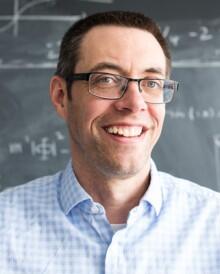Professor Will Percival, Director of the Waterloo Centre for Astrophysics, has been awarded a grant by the Canadian

The Euclid satellite is currently being assembled by the Euclid industrial prime contractor, Thales Alenia Space in Turin in order to fulfil its mission to map the Universe.
The
problem
that
Euclid
will
try
to
solve
is
one
of
the
biggest
in
physics:
why
the
current
expansion
of
the
Universe
is
accelerating.
The
solution
has
a
name,
“Dark
Energy”,
but
little
is
understood
about
it.
With
Dark
Energy,
the
evolution
of
the
Universe
is
driven
by
gravity
acting
on
the
material
of
the
Universe
pulling
it
together
and
causing
deceleration
of
the
expansion
rate.
To
match
current
observations
and
have
an
accelerating
Universe
we
need
either
a
weakening
of
gravity
on
large
scales
and
low
densities,
or
a
new
material
dominating
the
energy
budget
in
the
Universe.
Euclid
will
help
us
understand
which
of
these
is
correct,
providing
more
information
about
the
currently
unknown
physical
processes
at
work.
The
CSA
grant
will
enable
a
group
of
early-career
researchers
to
work
at
the
heart
of
the
consortium
of
scientists
working
on
Euclid.
Furthermore,
it
will
train
these
scientists
with
the
key
skills
required
for
a
number
of
future
career
directions.
Percival’s grant is one of four grants awarded by the Canadian Space Agency this year to researchers across Canada for the advance of scientific knowledge, and is the only project aiming to study the Universe beyond our Solar System.